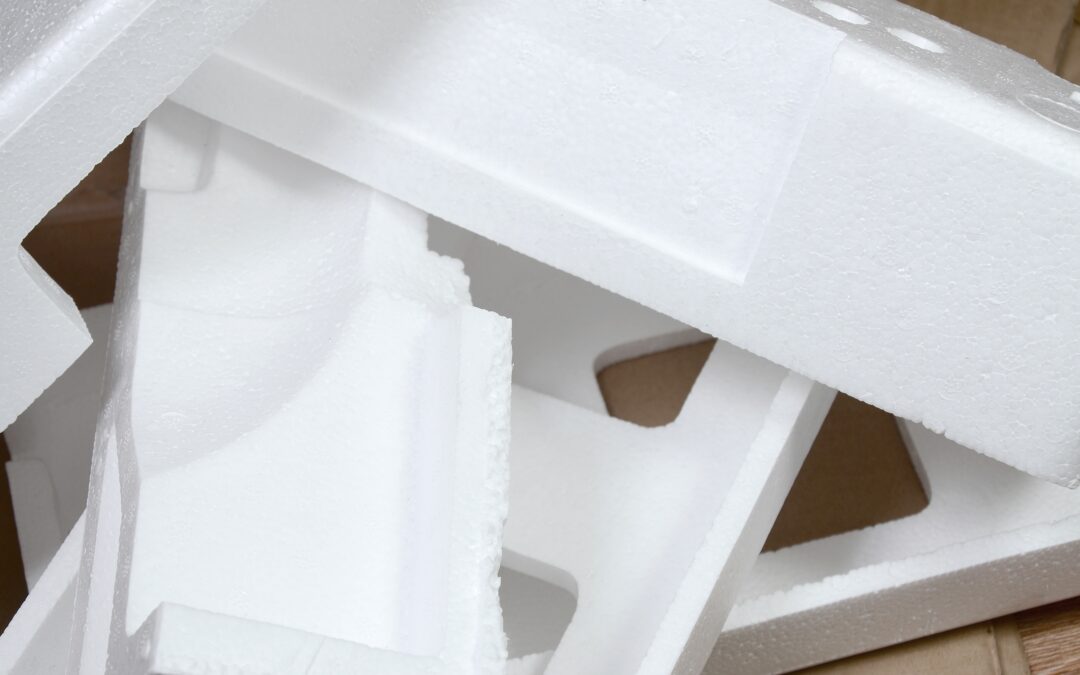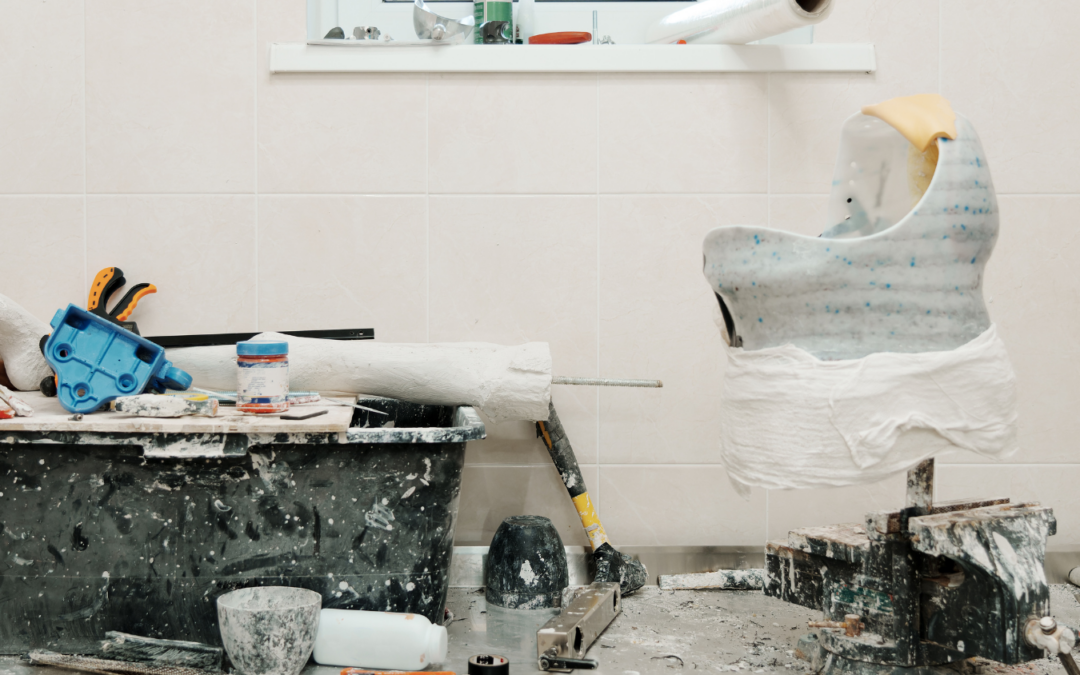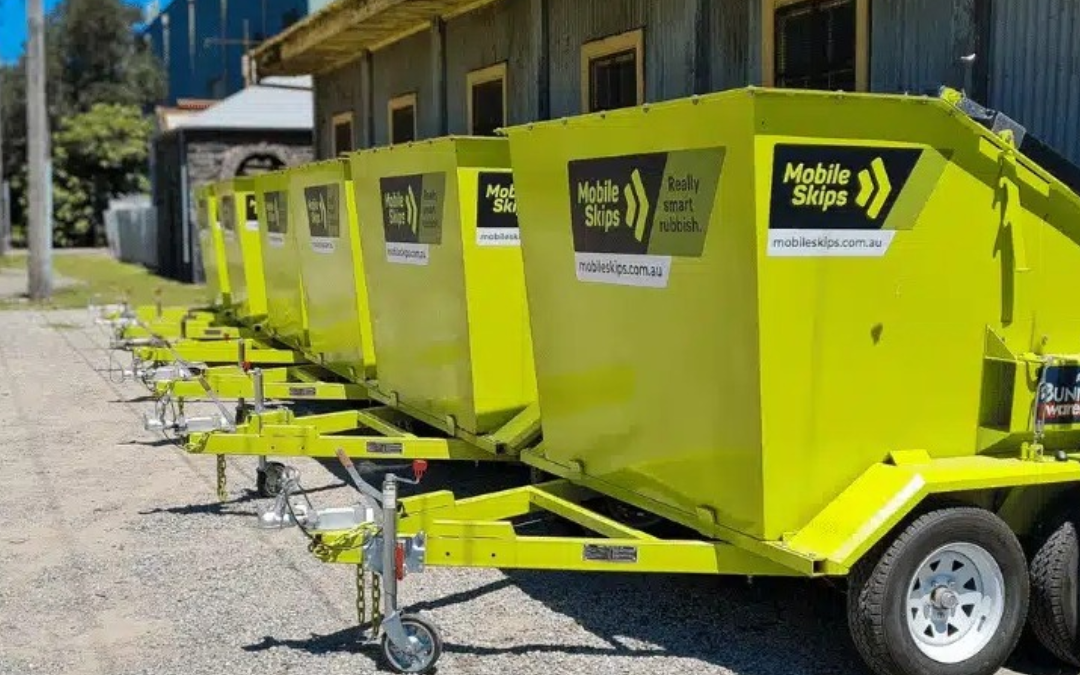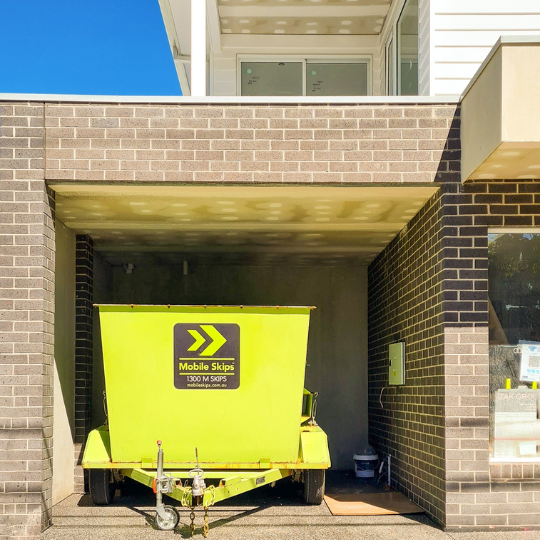The Importance of Proper Waste Disposal During a Kitchen Renovation
Undertaking a kitchen renovation can be an exciting yet challenging project. The process generates a significant amount of waste, and proper disposal is crucial for several reasons. One of the primary concerns is environmental impact. According to the Wisconsin Department of Natural Resources, correctly managing renovation waste helps minimise the amount of debris ending up in landfills. Recycling and responsible disposal reduce the environmental footprint, making your renovation more sustainable.
Additionally, using the correct waste disposal methods ensures compliance with local regulations, avoiding potential fines and legal issues. Proper waste segregation and disposal also contribute to a safer, cleaner workspace, decreasing the risk of accidents and injuries during the renovation process.
Overview of Common Waste Types from Kitchen Renovation Projects
When it comes to kitchen renovation waste, you will encounter several types of debris. Each type requires specific disposal methods to ensure efficiency and environmental responsibility. Proper disposal of these materials below is essential for an environmentally friendly kitchen remodel. For more detailed tips and guidance, refer to our section on removing renovation waste.
Types of Kitchen Renovation Waste and How to Dispose of It
Properly disposing of kitchen renovation waste is crucial to maintaining an organised, efficient workspace and ensuring sustainable waste management. Different types of waste require different disposal methods. Let’s explore how to manage various types of kitchen renovation debris.
Old Cabinets and Cupboards
Can Go in Skip Bins: Wooden, metal, and laminate cabinets.
Disposal Tip: Dismantle larger units to maximise space in your skip bin. Separating materials can also aid in recycling processes.
| Material | Suitable for Skip Bins |
|---|---|
| Wooden Cabinets | Yes |
| Metal Cabinets | Yes |
| Laminate Cabinets | Yes |
Countertops and Benchtops
Can Go in Skip Bins: Stone, wood, laminate, and composite benchtops.
Disposal Tip: Cut large countertops into smaller pieces for easier disposal and space optimisation.
| Material | Suitable for Skip Bins |
|---|---|
| Stone Benchtops | Yes |
| Wooden Benchtops | Yes |
| Laminate Benchtops | Yes |
| Composite Benchtops | Yes |
Flooring Materials
Can Go in Skip Bins: Tiles, wood, vinyl, and laminate flooring.
Disposal Tip: Stack neatly to maximise space in the bin and keep your disposal area organised. This helps to recycle materials effectively (EA Home Design).
| Material | Suitable for Skip Bins |
|---|---|
| Tiles | Yes |
| Wooden Flooring | Yes |
| Vinyl Flooring | Yes |
| Laminate Flooring | Yes |
Appliances
(Yeah Nah) Suitable for Skip Bins: Fridges, ovens, dishwashers, and other large appliances.
Disposal Tip: Arrange for appliance recycling through an large skip bin or local council collection for environmentally responsible disposal.
| Appliance | Suitable for Skip Bins | Disposal Method |
|---|---|---|
| Fridge | No | Skip bin or council collection |
| Oven | Yes but contributes to weight | Skip bin or council collection |
| Dishwasher | Yes but contributes to weight | Skip bin or council collection |
Plumbing Fixtures
Can Go in Skip Bins: Old sinks, taps, pipes.
Disposal Tip: Drain any residual water or liquid from pipes before disposal to prevent leaks and contamination.
| Material | Suitable for Skip Bins |
|---|---|
| Sinks | Yes |
| Taps | Yes |
| Pipes | Yes |
Electrical Wiring and Fixtures
Suitable for Skip Bins: Electrical wiring, outlets, switches, and lights.
Disposal Tip: Use a dedicated e-waste disposal service for safe removal of electrical materials to avoid harmful effects on the environment.
| Material | Suitable for Skip Bins | Disposal Method |
|---|---|---|
| Electrical Wiring | Yes | E-waste service |
| Electrical Outlets | Yes | E-waste service |
| Switches | Yes | E-waste service |
| Lights | Yes | E-waste service |
Drywall and Plasterboard
Can Go in Skip Bins: Drywall sheets and plasterboard.
Disposal Tip: Bag smaller debris and scraps to keep dust levels low and bin space optimised.
| Material | Suitable for Skip Bins |
|---|---|
| Drywall Sheets | Yes |
| Plasterboard | Yes |
Hazardous Materials
Not Suitable for Skip Bins: Paints, solvents, and adhesives.
Disposal Tip: Take hazardous materials to a local hazardous waste facility or contact your council for collection services to ensure safety and environmental protection.
| Material | Suitable for Skip Bins | Disposal Method |
|---|---|---|
| Paints | No | Hazardous waste facility |
| Solvents | No | Hazardous waste facility |
| Adhesives | No | Hazardous waste facility |
For more detailed disposal tips and sustainable practices, visit our section on home renovation waste.
How to Maximize Skip Bin Space During Kitchen Renovation
Maximizing space in your skip bin is crucial to ensure efficient disposal of kitchen renovation waste and to reduce environmental impact.Here are some effective strategies to achieve this.
Break Down Large Items (Cabinets, Countertops, etc.)
Dismantling larger units such as cabinets and countertops can significantly maximize skip bin space. By breaking them down into smaller pieces, you can not only fit more waste into the bin but also make it easier to manage.
| Item | Breakdown Method | Space Savings |
|---|---|---|
| Cabinets | Remove doors and shelves, dismantle frames | High |
| Countertops | Cut into smaller sections | High |
| Large Appliances | Remove doors, separate parts | Medium |
Stack Materials Neatly (Flooring, Wood, etc.)
Properly stacking materials like flooring and wood can help you organize your bin more efficiently. Neat stacking allows for better use of vertical space and keeps the disposal area orderly.
| Material | Stacking Technique | Space Optimization |
|---|---|---|
| Wooden Flooring | Align boards, stack flat | High |
| Vinyl Tiles | Lay flat, stack uniformly | High |
| Wooden Planks | Stack horizontally | Medium |
Use Bags for Small Debris (Drywall Dust, Small Scraps)
Small debris such as drywall dust and scraps should be bagged to keep dust levels low and optimize bin space. Using bags also makes it easier to handle and transport these materials.
| Debris Type | Bagging Method | Space Efficiency |
|---|---|---|
| Drywall Dust | Use heavy-duty bags | High |
| Small Scraps | Collect in bags or containers | Medium |
| Loose Particles | Contain in sealed bags | High |
Managing your home renovation waste efficiently not only helps in maintaining a tidy workspace but also in promoting sustainable waste disposal practices. For more tips on managing construction and demolition waste, consider exploring our other links on renovation clean up and sustainable waste removal.
Why Mobile Skips are Ideal for Kitchen Renovation Waste
When it comes to disposing of kitchen renovation waste, Mobile Skips offers an ideal solution tailored to your needs. Here are several reasons why Mobile Skips are perfect for your home renovation project:
4 Cubic Metre Skip Bins: Perfect for Residential Renovation Projects
Mobile Skips provides 4 cubic metre skip bins, which are the perfect size for residential renovation projects. This size offers ample space to accommodate the varied waste types generated during a kitchen renovation, including old cabinets, countertops, flooring materials, and more.
| Skip Bin Size | Volume (Cubic Metres) |
|---|---|
| Mobile Skip Bin | 4 |
No Council Permits Required for Placement
One of the advantages of using Mobile Skips is that you don’t need to obtain council permits for placement. This saves you time and effort, allowing you to focus on the renovation without worrying about bureaucratic delays. Mobile Skips’ bins are designed to fit conveniently on driveways and small spaces, ensuring hassle-free placement (EA Home Design).
Convenient for Driveways and Small Spaces
Mobile Skips are compact and designed to fit comfortably in driveways and other limited spaces. This convenience factor is especially beneficial for urban settings where space is at a premium. Whether you are located in a bustling city or a suburban neighbourhood, Mobile Skips provides a practical solution for home renovation waste.
Responsible Disposal and Recycling Options Available
Responsible waste disposal is a key concern during kitchen renovation projects (Timberlake Homes). Mobile Skips offers environmentally friendly disposal options, including recycling for materials like old cabinets and countertops. This helps reduce the environmental impact of your renovation and ensures that recyclable materials do not end up in landfills (Dumpster Market).
1 Tree Planted for Every Skip Hired with Carbon-Neutral Services
In addition to their practical benefits, Mobile Skips is committed to sustainability. For every skip hired, they plant one tree, contributing to reforestation efforts. Their services are also carbon-neutral, offering an eco-friendly solution for your demolition waste and other renovation debris (Revive Kitchen and Bath).
For more information on how to manage your renovation waste, read our article on removing renovation waste and renovation clean up. If you’re planning a renovation for other areas of your home, such as a bathroom renovation or home landscaping, we have resources available to guide you through the process.
Conclusion
Final Tips for Efficient Kitchen Renovation Waste Disposal
Efficient waste disposal is an essential aspect of any kitchen renovation. Effective management not only keeps your workspace tidy but also ensures that waste is disposed of in an environmentally responsible manner. Here are some final tips to help you manage your kitchen renovation waste efficiently:
- Plan Ahead: Understand the size and severity of your renovation to estimate the amount of debris. For larger projects, you’ll require a more comprehensive waste disposal plan (Dumpster Market).
- Dismantle Larger Items: Break down old cabinets, countertops, and large materials into smaller pieces to maximise skip bin space.
- Sort Waste: Separate recyclables like metal, wood, and plastic. Organise debris to make recycling easier, reducing the environmental impact.
- Use Bags for Smaller Debris: Bag drywall dust and small scraps to prevent them from taking up excessive space in your skip bin.
- Recycle Appliances: Arrange for appliance recycling through e-waste services or local council collections, as large appliances are not suitable for skip bins.
- Handle Hazardous Waste Properly: Take hazardous materials like paints and solvents to a local hazardous waste facility or contact your council for collection services.
Why Mobile Skips is the Best Choice for Kitchen Renovation Projects
Mobile Skips provides an ideal solution for managing renovation waste. Here’s why you should consider them:
- Perfect Size for Residential Projects: Their 4 cubic metre skip bins are perfect for residential renovations, like your kitchen project.
- No Council Permits Required: Bins can be conveniently placed in driveways and small spaces without needing council permits.
- Convenient and Efficient: Suitable for driveways and smaller spaces, making the waste disposal process hassle-free.
- Responsible Disposal: Mobile Skips emphasises responsible waste disposal and recycling options to help lessen the environmental impact of your renovation waste.
- Sustainability: For every skip bin hired, Mobile Skips plants a tree, ensuring carbon-neutral services and contributing positively to the environment.
Consider Mobile Skips for your next kitchen renovation project to ensure a smooth, efficient, and environmentally friendly waste disposal process. For more information, visit our page on reno skip bin waste and other home renovation waste solutions.






